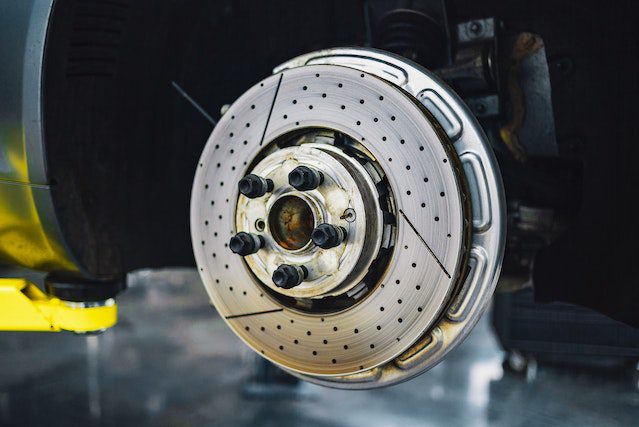

Brake pads are an essential component of a car’s braking system. They are responsible for providing the friction necessary to slow down and stop the vehicle. Over time, brake pads can wear down, which can affect the performance of the braking system and compromise the safety of the vehicle. In this blog, we will discuss how often car brake pads should be replaced and what factors can affect their lifespan.
The Lifespan of Brake Pads
Many factors, including as driving practises, the type of vehicle, and the type of brake pads, can affect how long brake pads last. Generally, brake pads can last anywhere from 25,000 to 70,000 miles. However, some brake pads may last up to 100,000 miles, while others may wear out in as little as 15,000 miles. The lifespan of brake pads depends on the following factors:
- Driving Habits: Driving habits can affect the lifespan of brake pads. Hard braking, frequent braking, and sudden stops can wear down brake pads faster than normal driving. In contrast, gentle braking and maintaining a safe following distance can help extend the life of brake pads.
- Type of Vehicle: The weight and size of a vehicle can also affect the lifespan of brake pads. Larger, heavier vehicles require more force to stop, which can cause more wear and tear on the brake pads. As a result, brake pads may need to be replaced more frequently on larger vehicles.
- Type of Brake Pads: There are several types of brake pads, including ceramic, organic, and metallic. Each type of brake pad has its own unique properties, which can affect its lifespan. For example, ceramic brake pads are known for their durability and can last longer than organic or metallic brake pads.
When to Replace Brake Pads?
While the lifespan of brake pads can vary, there are several signs that indicate when it may be time to replace them. Here are some common signs that brake pads need to be replaced:
- Squeaking or Grinding Noise
One of the most common signs that your brake pads need to be replaced is a squeaking or grinding noise when you apply the brakes. This noise is caused by the brake pad’s wear indicator, which is designed to make a noise when the pads are worn down to a certain point. If you hear a squeaking or grinding noise when you apply the brakes, it’s time to replace your brake pads.
- Reduced Braking Performance
If you notice that your vehicle is taking longer to stop or requires more force to stop, it may be a sign that your brake pads are worn down. This can occur because the brake pads have become thin or are not creating enough friction with the rotor. If you experience reduced braking performance, it’s important to have your brake pads inspected by a professional mechanic.
- Vibration or Shaking
If you feel a vibration or shaking in the steering wheel or brake pedal when you apply the brakes, it may be a sign that your brake pads are worn down and need to be replaced. This vibration or shaking is caused by the brake rotor being unevenly worn due to the brake pads being worn down unevenly.
- Warning Light
Many newer vehicles come equipped with a warning light that will illuminate on the dashboard when the brake pads are worn down. This warning light is typically a red circle with the letter “P” inside it. If this warning light illuminates, it’s important to have your brake pads inspected and replaced as soon as possible.
- Visual Inspection
It’s important to visually inspect your brake pads regularly, particularly during routine maintenance checks. A visual inspection can help identify issues such as uneven wear or thinning of the brake pad lining. The brake pads can be seen through the wheels, and any signs of uneven wear or thinning should be addressed promptly.
It is important to note that brake pads should be replaced as soon as possible if any of these signs are present. Delaying the replacement of brake pads can compromise the safety of the vehicle and its occupants.
Conclusion
It is important to pay attention to signs of wear and tear and replace brake pads as soon as possible to ensure the safety of the vehicle and its occupants. Regular inspection of the brake system, including pads, is recommended to catch any potential issues early on. Be sure to consult with a professional mechanic if you have any questions or concerns regarding the condition of your brake pads.




